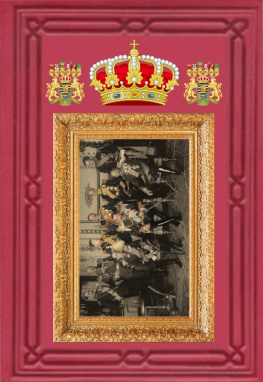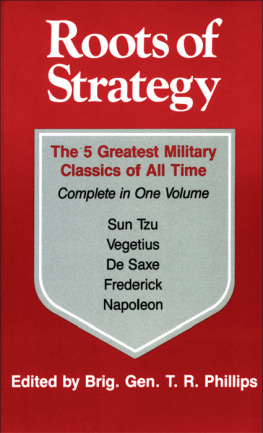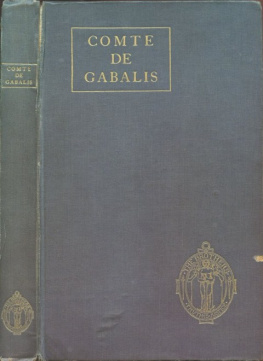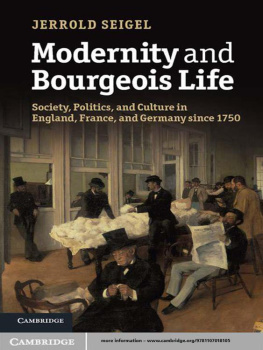Jon Manchip White - Marshal Of France: The Life And Times Of Maurice, Comte De Saxe, 1696-1750
Here you can read online Jon Manchip White - Marshal Of France: The Life And Times Of Maurice, Comte De Saxe, 1696-1750 full text of the book (entire story) in english for free. Download pdf and epub, get meaning, cover and reviews about this ebook. year: 2011, publisher: Literary Licensing, LLC, genre: Non-fiction / History. Description of the work, (preface) as well as reviews are available. Best literature library LitArk.com created for fans of good reading and offers a wide selection of genres:
Romance novel
Science fiction
Adventure
Detective
Science
History
Home and family
Prose
Art
Politics
Computer
Non-fiction
Religion
Business
Children
Humor
Choose a favorite category and find really read worthwhile books. Enjoy immersion in the world of imagination, feel the emotions of the characters or learn something new for yourself, make an fascinating discovery.

- Book:Marshal Of France: The Life And Times Of Maurice, Comte De Saxe, 1696-1750
- Author:
- Publisher:Literary Licensing, LLC
- Genre:
- Year:2011
- Rating:5 / 5
- Favourites:Add to favourites
- Your mark:
- 100
- 1
- 2
- 3
- 4
- 5
Marshal Of France: The Life And Times Of Maurice, Comte De Saxe, 1696-1750: summary, description and annotation
We offer to read an annotation, description, summary or preface (depends on what the author of the book "Marshal Of France: The Life And Times Of Maurice, Comte De Saxe, 1696-1750" wrote himself). If you haven't found the necessary information about the book — write in the comments, we will try to find it.
Marshal Of France: The Life And Times Of Maurice, Comte De Saxe, 1696-1750 — read online for free the complete book (whole text) full work
Below is the text of the book, divided by pages. System saving the place of the last page read, allows you to conveniently read the book "Marshal Of France: The Life And Times Of Maurice, Comte De Saxe, 1696-1750" online for free, without having to search again every time where you left off. Put a bookmark, and you can go to the page where you finished reading at any time.
Font size:
Interval:
Bookmark:

This edition is published by PICKLE PARTNERS PUBLISHINGwww.pp-publishing.com
To join our mailing list for new titles or for issues with our books picklepublishing@gmail.com
Or on Facebook
Text originally published in 1960 under the same title.
Pickle Partners Publishing 2016, all rights reserved. No part of this publication may be reproduced, stored in a retrieval system or transmitted by any means, electrical, mechanical or otherwise without the written permission of the copyright holder.
Publishers Note
Although in most cases we have retained the Authors original spelling and grammar to authentically reproduce the work of the Author and the original intent of such material, some additional notes and clarifications have been added for the modern readers benefit.
We have also made every effort to include all maps and illustrations of the original edition the limitations of formatting do not allow of including larger maps, we will upload as many of these maps as possible.
MARSHAL OF FRANCE: THE LIFE AND TIMES OF MAURICE, COMTE DE SAXE [1696-1750]
BY
JON MANCHIP WHITE


Contents
TO
T. R. HENN
Scholar and Soldier
MAURICE DE SAXE
MARIA AURORA, COUNTESS VON KNIGSMARCK
AUGUSTUS II, ELECTOR OF SAXONY AND KING OF POLAND
ADRIENNE LECOUVREUR
A CAVALIER
THE BATTLE OF FONTENOY
MAURICE IN MORE MATURE YEARS
CHATEAU DE CHAMBORD
MAURICE DE SAXE
THE KNIGSMARCKS
THE ROMANOVS
THE FRENCH BOURBONS AND THE SAXON WETTINS
MALPLAQUET
COURLAND
PRINCIPAL FORTIFIED SITES ALONG THE RHINE
A FORTRESS UNDER ATTACK IN FORM
FLANDERS AND THE NETHERLANDS
FONTENOY
ROCOUX
LAUFELDT
MAURICE DE SAXE was the brilliant adornment of a brilliant age, one of the most renowned and admired men in the Europe of his day. It is not surprising that the writing of the biography of this vivid, talented and entertaining figure should have provided the author with a genial and absorbing task.
He came of extraordinary stock; the circumstances of his birth were remarkable; he was the lover of many celebrated women; he won the lifelong friendship of men of the stature of Voltaire; he aspired to a crown, and nearly became the Czar of Russia; his activities spanned a whole continent, from Paris to Dresden, from Dresden to Warsaw, from Warsaw to Moscow. Yet he was more, much more, than an energetic and flamboyant adventurer: he was acknowledged to be the outstanding general of his era, a military genius who linked the epoch of Marlborough with the epoch of Frederick the Great. He led great armies and won great victories.
It is part of the purpose of this book to restore him to the pre-eminent place in social and military history to which his achievements entitle him. The study of his campaigns has proved no dutiful or dreary labour, for he was among the wittiest and most elegant military practitioners who have ever lived. There was a touch of diablerie about the manner in which he gained his spectacular triumphs that set him apart from the other great captains of his era.
His claim to a due measure of re-assessment does not reside in his professional success alone. He was a deeply interesting person in his own right, and in many ways a sad one. His essential core of hard good sense was embedded in a strange romantic temperament. The practical soldier was also a dreamer and an idealist. Nor did his victories come to him cheaply or easily: they had to be brought about in the teeth of adversity, animosity, and mental and physical distress. He was compelled to fulfil his ultimate destiny and realize the purpose of his life in spite of sickness, self-mistrust, and the most bitter and ruthless opposition.
It is, I think, true to say that this is the first comprehensive biography of Saxe. With the exception of one or two short and sensational studies, the only serious attempts at biography were those that appeared during the closing years of the ancien rgime , and the book by Ren Taillandier, published over ninety years ago. Taillandier, however, was not interested in military affairs; and the monumental researches of Colonel Colin on Saxes campaigns were terminated by Colins death in battle at Verdun. It has therefore been my particular privilege to try to bring together the two halvesprivate and professionalof Maurices life, and to examine them much more fully than has been done hitherto. The actual biographies of Saxe have not in fact constituted my main sources of printed material. In this field such miscellanies as that of Vitzthum dEckstaedt, published in 1867, containing Maurices correspondence with the Saxon court, have been especially useful: and above all there are the five packed volumes of the Lettres et Mmoires choisis parmi les Papiers originaux du Marchal de Saxe , published in Paris in 1794curiously enough, at the height of the Revolution that was sweeping away the Old Order of which Saxe had been a notable pillar. These volumes, haphazard and chaotically organized as they are, are a mine of information about the conduct of the Wars of the Polish and Austrian Succession, and appear to have remained almost untouched in the study of those wars.
The available materials relating to the career of this remarkable and important figure have not previously been sifted. At first glance it seems strange that such a rich and glowing personality should not have been the subject of a full-scale modern work: but paradoxically his very glamour may have been responsible for this omission. He is that rare creature whom historians are always glad to treat in a marginal fashion, but whom they do not like to encounter head on: the colourful character. It is the economists and diplomats who provide the historian with his safer and more respectable matter. Maurice was different: he loved noise, excitement, rewards, women, wine, and gloryespecially glory, a defunct attribute of human existence whose sheen dulls and dies as swiftly as the sheen on the scales of a splendid dying fish. It is not surprising that a professional historian has not cared to embroil himself with a man as extravagant as Maurice, whose achievements are so individual that it is a temptation to treat them far less seriously than they merit. For this reason it is perhaps no bad thing that it should be left to a writer of novels and imaginative literature to write the life of Maurice, for he can revel in an unashamed and uninhibited way in the contradictions of Maurices character and the eccentric outline of his career. It would, of course, be absurd to put forward grandiose claims on behalf of Maurice. But it would be equally foolish to underrate him, since his contemporaries clearly regarded him as a person of supreme importance. And it is in any case often the more peripheral personalities who enable one to glimpse with unusual clarity the true nature of an age. They are more human, more representative, and swim closer to the median current of their time.
Although history never repeats itself, it is notorious that historians do. Maurices character and career have been subjected to reiterated inaccuracies. This is particularly true in the personal domain, where a legendary, one might almost say fantastic atmosphere surrounds his fathers and mothers families and his own quasi-heroic exploits. Here it has been of special importance to disentangle fact from fiction. Where his military campaigns are concerned, it has not been so necessary to separate the true from the false as to collate the contemporary narratives and the writings of later military historians. In the numerous accounts of what happened at even such a well-known battle as Fontenoy, lavishly documented on both the French and British sides, there are wide differences concerning every detail of the encounter. The accounts of Maurices campaigns which I have given, though based primarily on his field-correspondence with his own officers and on the French military archives, are therefore largely a matter of intelligent interpretation, supplemented by a long-cultivated study of eighteenth-century warfare in general and a careful personal survey of the actual ground over which the engagements were fought, so far as its original conformation can be discerned.
Next pageFont size:
Interval:
Bookmark:
Similar books «Marshal Of France: The Life And Times Of Maurice, Comte De Saxe, 1696-1750»
Look at similar books to Marshal Of France: The Life And Times Of Maurice, Comte De Saxe, 1696-1750. We have selected literature similar in name and meaning in the hope of providing readers with more options to find new, interesting, not yet read works.
Discussion, reviews of the book Marshal Of France: The Life And Times Of Maurice, Comte De Saxe, 1696-1750 and just readers' own opinions. Leave your comments, write what you think about the work, its meaning or the main characters. Specify what exactly you liked and what you didn't like, and why you think so.







